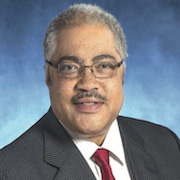
This meeting, held virtually, attracted over 140 scientists from 32 U.S. academic institutions, as well as Canada, Australia, and South Korea from a broad range of scientific subspecialties. This virtual meeting showcased not only the superb research by our Duke trainees but provided an opportunity for trainees across the US and internationally to highlight their research. Over 50 abstracts were submitted, and the best trainee submissions were selected for oral platform presentations by the KURe advisory committee. The symposium offered 2 keynote speakers, 6 oral platform presentations by our awardees and KURe scholars, and 2 multidisciplinary panel discussions. During 6 concurrent scientific sessions trainee presentations were judged to win basic, translational, and clinical research awards. Additionally, there was opportunity on Friday for trainees to meet in small groups with experts for networking and advice.
Trainee Award Winners
Oral Platform Presentations
Best Basic Science Abstract
Petra Popovics, PhD, University of Wisconsin-Madison
Loss of Osteopontin Leads to the Resolution of E. Coli-Induced Prostatic Inflammation and Fibrosis
Best Translational Science Abstract
Stephanie Sirmakesyan, BS, McGill University
Potential Diagnostic Value of Urine MicroRNAs for Female Patients with Overactive Bladder
Best Clinical Science Abstract
Sonali Advani, MBBS, MPH, Duke University
Sustained Reduction in Catheter-Associated Urinary Tract Infections using Multi-Faceted Strategies led by Champions: A Quality Improvement Initiative
Concurrent Sessions - Trainee Presentations
Basic Science – 1st Place
Byron Hayes, PhD, Duke University
Hyperinnervation and Chronic Mast Cell Activity in Bladder Pain Syndrome Following Recurrent Urinary Tract Infection
Basic Science – 2nd Place
Eric Gonzalez, PhD, Duke University
Voiding and Muscle Contractility Dysfunction in a Rat Model of Detrusor Underactivity
Translational Science – 1st Place
Kevin Tyler Hobbs, MD, Duke University
Machine Learning for Urodynamic Detection of Detrusor Overactivity
Translational Science – 2nd Place
Elizabeth Bottorff, MS, University of Michigan, Ann Arbor
Investigating the effect of tibial and pudendal nerve stimulation on external vaginal blood flow in anesthetized rodents
Clinical Science – 1st Place
Lauren Caldwell, MD, University of Texas at Austin
Women's Experience of Their First Sexual Encounter After Urinary Incontinence and/or Pelvic Organ Prolapse Surgery: A Qualitative Study
Clinical Science – 2nd Place
Douglas Luchristt, MD, Duke University
Timing of Diagnosis of Complex Lower Urinary Tract Injury in the 30-Day Postoperative Period Following Benign Hysterectomy
Speakers

Professor and Chair of Anatomy & Neuroscience
University of Melbourne, Victoria, Australia
Keynote: Constructing a Sacral Visceral Connectome to Advance Bioelectronic Medicine
Dr Keast is recognized internationally in the area of autonomic neuroscience, especially the neural regulation of urogenital organs and the impact of injury on these nerves. Her intersecting interest in the neurobiology of pain has focused on pelvic visceral pain and spinal cord injury pain, specifically investigating the plasticity of sensory and spinal neurons. A long-standing interest in sexual dimorphism and actions of sex hormones in the nervous system has underpinned many of her studies on sensory and autonomic neurons.

Professor of Urology, Oncology, Department of Urology
Johns Hopkins University, School of Medicine
Keynote: Nitric Oxide Revolutionized Lower Genitourinary Tract Therapies: From Bench to Bedside
Dr. Arthur (Bud) Burnett received his A.B. degree in Biology from Princeton University and M.D. and M.B.A. degrees from Johns Hopkins University. He performed post-graduate training in general surgery, urology, and reconstructive urology and urodynamics at the Johns Hopkins Hospital. At present, he holds the position of Patrick C. Walsh Distinguished Professor of Urology. Dr. Burnett has served in multiple professional capacities with medical organizations and advisory committees. He has made academic contributions consistent with his biomedical research and clinical activities in sexual medicine, major pelvic reconstruction, and genito-urinary oncology. He has written more than 300 original peer-review articles, 70 editorial comments, 50 book chapters, and 2 books.
Associate Professor, Biomedical Engineering, University of Michigan
Panelist: Beyond Urology: How Collaborations Are Advancing Neurourology
Dr. Tim M. Bruns is an Associate Professor and the Associate Chair for Graduate Education in the Biomedical Engineering Department at the University of Michigan. His research group, the Peripheral Neural Engineering and Urodynamics Lab, is part of the University of Michigan Biointerfaces Institute. His lab performs preclinical and clinical studies to examine systems-level neurophysiology and restore pelvic organ function, with a focus on neuromodulation for bladder control and female sexual function. His research has been supported by funding from the NIH, including the NIH SPARC program, an NSF CAREER award, the Craig H. Neilsen foundation, and industry. He has trained four postdoctoral fellows, eight PhD and twelve MS graduate students, and more than thirty-five undergraduates in his lab.
Chair, Psychiatry & Neurobehavioral Sci., Univ. of Virginia
Panelist: A Multidisciplinary Approach to Sexual Medicine
Dr. Clayton is an international leader in Female Sexual Dysfunction (FSD). She has focused her clinical practice and research on: major depressive disorder, mood disorders associated with reproductive-life events in women, sexual dysfunction and sexual disorders. Dr. Clayton has published over 200 peer-reviewed papers, and was named to the 2019-2020 Best Doctors in America list. She has served on the board of directors for the American Society for Clinical Psychopharmacology, and as Program Committee Co-Chair, and as a member of numerous Advisory Boards for the pharmaceutical industry (treatment of depression and sexual dysfunctions). She occasionally writes a blog for the Huffington Post.
Associate Professor, Urology, Weill Cornell Medicine
Panelist: Beyond Urology: How Collaborations Are Advancing Neurourology
Dr. Khavari earned her medical doctorate degree with highest honors from the University of Texas Medical Branch in Galveston, Texas, while serving as the president for Alpha Omega Alpha medical honor society. She completed her residency in Urology at Baylor College of Medicine, followed by a fellowship in male and female continence, pelvic floor reconstructive surgery, Urogynecology and neurourology. Dr. Khavari specializes in male and female incontinence, robotic and laparoscopic surgery, pelvic organ prolapse, and neurogenic urology. In October 2015, Dr. Khavari, a K23 scholar (NIDDK), was selected for funding for her proposed work in neurourology and as a clinician scientist by Houston Methodist Hospital. She has also been chosen for the 2016 American Urological Association/European Association of Urology Academic Exchange Program where she traveled to various urology institutions in Europe to present scientific lectures on her clinical work and her research. With her comprehensive and advanced clinical training, as well as interest in research and teaching, Dr. Khavari is a leader in neurourology and pelvic reconstructive surgery. She also serves as the program director for Urology Residency at Houston Methodist Hospital.
VP of Preclinical Research, Dignify Therapeutics, Research Triangle, NC
Panelist: A Multidisciplinary Approach to Sexual Medicine
Dr. Marson is Vice President of Preclinical Research at Dignify Therapeutics and Adjunct Professor in the Eshelman School of Pharmacy at UNC Chapel Hill. Dr Marson directed a successful NIH-funded a preclinical research program for over 30 years, served as Study Coordinator for several clinical trials and Chaired the IACUC as Research Professor in the Urology Division in the School of Medicine at UNC Chapel Hill. Her research has focused on the neurological control of pelvic function, including sexual and bladder function in males and females, leading to 20 publications identifying the peripheral-spinal cord-brain circuits that control the genital organs, bladder, and skeletal muscles. Dr Marson conducts preclinical studies supporting drug discovery and development for ejaculatory function, sexual behavior, urination, defecation, pain, anxiety and depression, in male and female rodents. Before moving to Dignify Therapeutics, she was Director of Sexual Health Research at Urogenix Inc conducting drug discovery of potential targets modulating ejaculatory function and voiding. Dr Marson has mentored urology residents, medical students, post-docs and bachelor students, and has over 80 peer reviewed publications. She serves on various editorial boards including J. of Sexual Medicine, Current Sexual Health Reports and Spinal Cord Series and Cases and has served on multiple NIH and DOD study sections. Dr Marson’s current focus area is drug formulation and development to restore voluntary control of excretory function to those with spinal cord injury, MS, diabetes and the elderly.
Professor, Anatomy & Cell Biology, Temple University
Panelist: Beyond Urology: How Collaborations Are Advancing Neurourology
Dr. Ruggieri has been working on clinically translatable basic science investigations, primarily mechanisms of neural control of visceral smooth muscle. The general approach has been to use animal models of clinically relevant human disorders to identify potential etiologic and pathogenic mechanisms and then verify these mechanisms in human tissue specimens to develop targets for therapeutic interventions. For example, his was one of the first groups to demonstrate that human urinary bladder muscle strips from patients with certain pathologic conditions show purinergic nerve mediated contractions. His laboratory is using neural recording and stimulation techniques to monitor the return of urinary bladder emptying function in a canine model. Dr. Ruggieri’s approach is to reinnervate these organs with nerve transfer closer to the end organ with somatic nerve transfer. These studies are intended to provide the final proof of concept before detailed, well controlled clinical trials in human subjects can begin. His lab is investigating specific therapeutic targets for treatment of aging bladder dysfunction.
Director of the School of Medicine Cardiovascular Translational Research Center, University of South Carolina School of Medicine
Panelist: A Multidisciplinary Approach to Sexual Medicine
Dr. Webb graduated from the Southern Illinois University, in 1971, and received his Ph.D. in Anatomy from the University of Iowa in 1976. He was the Herbert S. Kupperman Chair in Cardiovascular Disease and Chair of the Department of Physiology at the Medical College of Georgia, Augusta University. In March 2020, he accepted a professorship in the Department of Cell Biology and Anatomy at the University of South Carolina School of Medicine. He also directs the Cardiovascular Translational Research Center. His research interests focus on the physiology of smooth muscle with particular emphasis on hypertension, bladder physiology and sexual dysfunction. He has published over 360 peer-reviewed papers and 130 book chapters and reviews and is currently funded by a National Institutes of Health (NIH) Program Project Grant.
Mentoring is one of the strongest attributes of Dr. Webb. For nearly four decades, he has promoted the careers of many students and post-doctoral fellows. Forty-nine postdoctoral fellows have trained in his laboratory and he has served as the thesis supervisor for twenty-three graduate students. He has served on seventy-four dissertation committees and over 100 undergraduate students have trained in his laboratory. Nineteen faculty from universities around the world have spent their sabbatical leave in Dr. Webb’s laboratory.